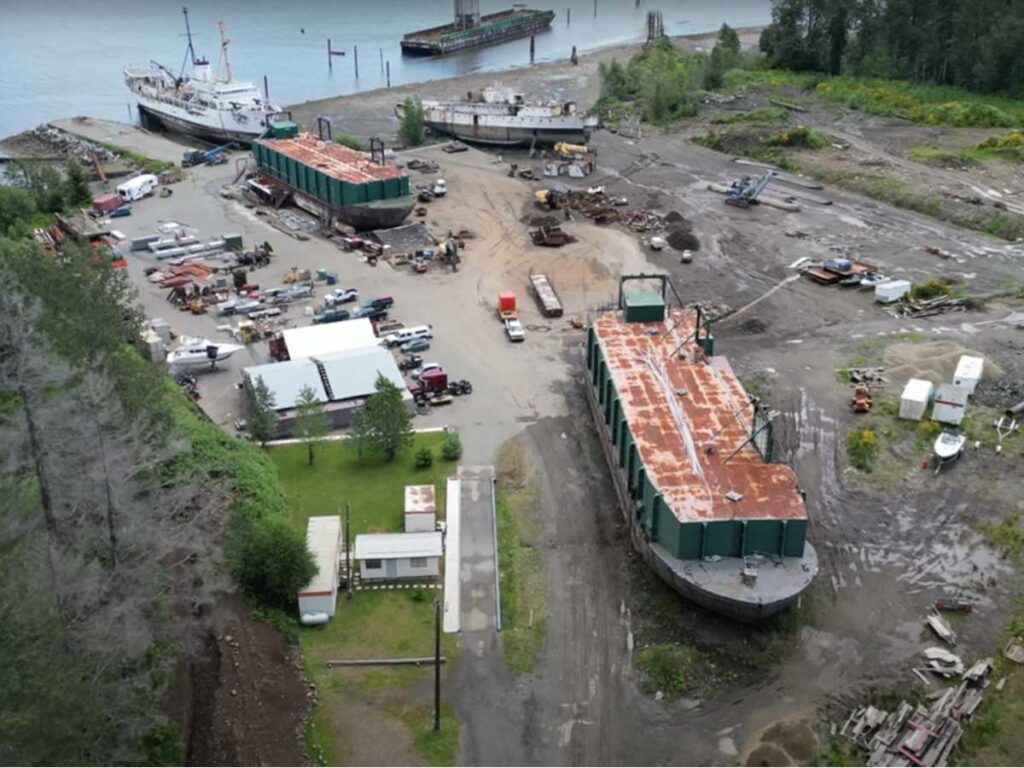SHIPBREAKING

Industrial shipbreaking on the shores of Union Bay in Baynes Sound raises questions about how the marine ecosystem in this area is being protected and who is in charge of protecting it.
This situation has been going on since 2020 when Deep Water Recovery set up shop on the shoreline of Union Bay next to a residential area. This has caused consternation in communities on both sides of the Sound. The province’s Environment Ministry has sent out a series of warning letters, the K’ómoks First Nation has registered their opposition and the regional government initiated a court case. But shipbreaking continues.
Earlier this year the British Columbia’s Environmental Review Board issued fines totally $46,150 to Deep Water Recovery. In reported that on seven dates that the provincial ministry tested in 2023 and 2024, the operation “caused or allowed waste to be introduced to the environment,” and subsequently failed to cease the release of that discharge. This discharge included copper, lead, and zinc levels thousands of percentage points over BC’s Water Quality Guidelines. The next stage of enforcement is unclear but you can read more about the case here.
Local MLA and BC Health Minister Josie Osborne has convened a table of representatives from K’ómoks First Nation as well as federal, provincial and regional governments to address this issue and the outdated system that enabled the situation to develop in the first place. So far, that has not resulted in any changes in policy or regulation.
Deep Water Recovery argues that the levels are from the time when the area produced and shipped coal.
Identifying jurisdictional and regulatory gaps is part of our work at the Baynes Sound/Lambert Channel EcoForum. The November 2024, EcoForum meeting looked at shipbreaking as a case study for the silos and weak enforcement that plague this important body of water.